
Lloyd Lionel Gaines was the plaintiff in Gaines v. Canada (1938), one of the most important early court cases in the 20th-century U.S. civil rights movement. After being denied admission to the University of Missouri School of Law because he was African American, and refusing the university's offer to pay for him to attend a neighboring state's law school that had no racial restriction, Gaines filed suit. The U.S. Supreme Court ultimately ruled in his favor, holding that the separate but equal doctrine required that Missouri either admit him or set up a separate law school for black students.
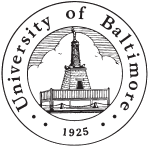
The University of Baltimore is a public university in Baltimore, Maryland. It is part of the University System of Maryland. UBalt's schools and colleges provide education in business, law, public affairs, and the applied arts and sciences. The university is the location of one of Maryland's two law schools.

Charles Hamilton Houston was an American lawyer. He was the dean of Howard University Law School and NAACP first special counsel. A graduate of Amherst College and Harvard Law School, Houston played a significant role in dismantling Jim Crow laws, especially attacking segregation in schools and racial housing covenants. He earned the title "The Man Who Killed Jim Crow".
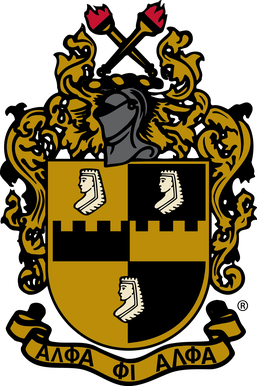
Alpha Phi Alpha Fraternity, Inc. (ΑΦΑ) is the oldest intercollegiate historically African American fraternity. It was initially a literary and social studies club organized in the 1905–1906 school year at Cornell University but later evolved into a fraternity with a founding date of December 4, 1906. It employs an icon from Ancient Egypt, the Great Sphinx of Giza, as its symbol. Its aims or pillars are "Manly Deeds, Scholarship, and Love For All Mankind," and its motto is "First of All, Servants of All, We Shall Transcend All." Its archives are preserved at the Moorland-Spingarn Research Center.
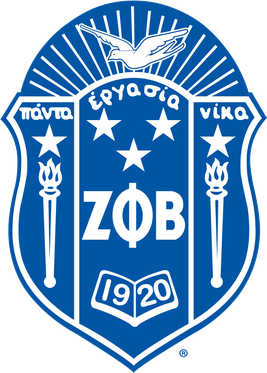
Zeta Phi Beta Sorority, Inc. (ΖΦΒ) is an International collegiate sorority that is historically African American. In 1920, five women from Howard University envisioned a sorority that would raise the consciousness of their people, encourage the highest standards of scholastic achievement, and foster a greater sense of unity among its members. These women believed that sorority elitism and socializing overshadowed the real mission of progressive organizations. Since its founding Zeta Phi Beta has historically focused on addressing social causes.
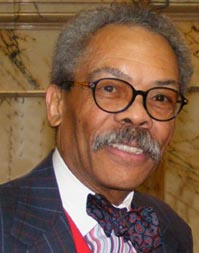
Robert Mack Bell is an American lawyer and jurist from Baltimore, Maryland. From 1996 to 2013, he served as Chief Judge on the Maryland Court of Appeals, now known as the Supreme Court of Maryland, the state's highest appellate court. He was the first African American to hold the position.
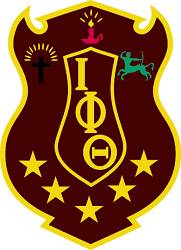
Iota Phi Theta Fraternity, Inc. (ΙΦΘ) is a historically African American fraternity. It was founded on September 19, 1963, at Morgan State University in Baltimore, Maryland, and is the fifth largest Black Greek Lettered Fraternity. Members of the close-knit afrocentric fraternity proudly embrace the organization’s youth, uniqueness, individualism and modern idealism. As a contemporary organization, many members have had the great honor of meeting, fellowshipping with, and/or engaging in personal or virtual discussions with one or more of their founders. Today there are over 301 undergraduate and alumni chapters, as well as colonies located in 40 U.S. states, the District of Columbia, The Bahamas, Colombia, South Korea, and Japan.
Belford Vance Lawson Jr. was an American attorney and civil rights activist who made at least eight appearances before the U.S. Supreme Court. He was the first African-American man to win a case before the Supreme Court and the first African-American president of YMCA. His wife, Marjorie McKenzie Lawson, was also an attorney who served as the first African-American female judge to receive senatorial confirmation to the newly created Juvenile Court of the District of Columbia

Delta Phi Epsilon (ΔΦΕ) or Delta Phi Epsilon Foreign Service Council the largest national American professional foreign service fraternity and sorority. Founded on January 25, 1920, it was the first fraternity dedicated to careers in foreign diplomacy in trade. Its Alpha chapter went on in the first half of the twentieth century to colonize new chapters at many other universities throughout the country, although most chapters went defunct in the latter half of the century. In 1973 Delta Phi Epsilon Foreign Service Sorority was founded, with its Alpha chapter at Georgetown University. As of 2021, there remained ten active collegiate chapters, half of which were created between 2016 and 2018.

Charlotte E. Ray was an American lawyer. She was the first black American female lawyer in the United States. Ray graduated from Howard University School of Law in 1872. She was also the first female admitted to the District of Columbia Bar, and the first woman admitted to practice before the Supreme Court of the District of Columbia. Her admission was used as a precedent by women in other states who sought admission to the bar.
Murray v. Pearson was a Maryland Court of Appeals decision which found "the state has undertaken the function of education in the law, but has omitted students of one race from the only adequate provision made for it, and omitted them solely because of their color." On January 15, 1936, the court affirmed the lower court ruling which ordered the university to immediately integrate its student population, and therefore created a legal precedent making segregation in Maryland illegal.
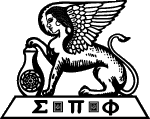
Sigma Pi Phi (ΣΠΦ), also known as The Boulé, is an African American professional fraternity. Founded in Philadelphia, Pennsylvania, in 1904, it is arguably the oldest fraternity for African Americans, between it and Alpha Phi Alpha founded at Cornell University. The fraternity does not have collegiate chapters and is designed for professionals in mid-career or older. Sigma Pi Phi has over 5,000 members and 139 chapters throughout the United States, the United Kingdom, The Bahamas, Colombia and Brazil.

Frederick Douglass High School, established in 1883, is an American public high school in the Baltimore City Public Schools district. Originally named the Colored High and Training School, Douglass is the second-oldest U.S. high school created specifically for African American students. Prior to desegregation, Douglass and Paul Laurence Dunbar High School were the only two high schools in Baltimore that admitted African-American students, with Douglass serving students from West Baltimore and Dunbar serving students from East Baltimore.
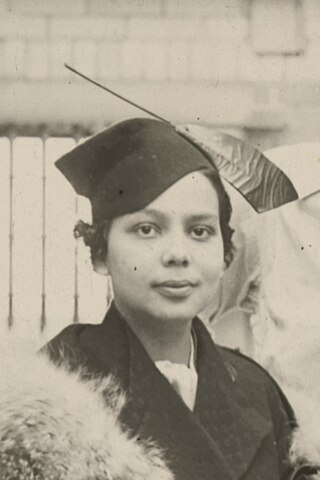
Juanita Elizabeth Jackson Mitchell was born in Hot Springs, Arkansas, and was the first African-American woman to practice law in Maryland. She was married to Clarence M. Mitchell, Jr., mother of two Maryland State Senators, and grandmother of one.
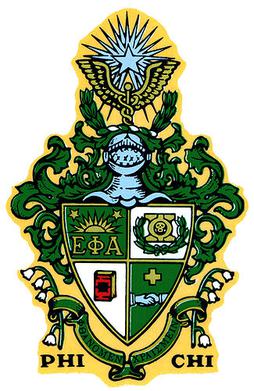
Phi Chi (ΦΧ) is one of the oldest and largest international medical fraternities of its kind in the world. Phi Chi evolved from the merging of two professional medical fraternities bearing the same name. Phi Chi Society was founded on March 31, 1889, at the University of Vermont, Burlington, Vt. Phi Chi Medical Fraternity was founded on October 26, 1894, at the Louisville Medical College, Louisville, Ky. These two organizations did not know that they shared a similar name when they were founded. On March 5, 1905, in Burlington, Vt., Phi Chi Society and Phi Chi Medical Fraternity, Inc., were consolidated taking the name Phi Chi Medical Fraternity, Inc.
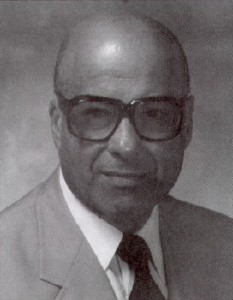
John Michael Manos was a United States district judge of the United States District Court for the Northern District of Ohio.

Delta Theta Phi (ΔΘΦ) is a professional law fraternity and a member of the Professional Fraternity Association. Delta Theta Phi is the only one of the two major law fraternities to charter chapters (senates) in the United States at non-American Bar Association-approved law schools. Delta Theta Phi can trace its roots to Delta Phi Delta on September 15, 1900 at the then-named Cleveland Law School, now Cleveland-Marshall College of Law in Ohio. Delta Theta Phi has initiated more than 138,000 members across the country and in several other nations.
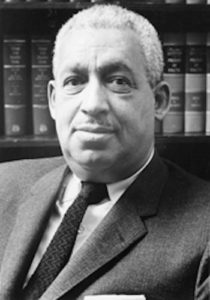
William Robert Ming Jr. was an American lawyer, attorney with the National Association for the Advancement of Colored People (NAACP) and law professor at University of Chicago Law School and Howard University School of Law. He presided over the Freeman Field mutiny courts-martial involving the Tuskegee Airmen. He is best remembered for being a member of the Brown v. Board of Education litigation team and for working on a number of the important cases leading to Brown, the decision in which the United States Supreme Court ruled de jure racial segregation a violation of the Equal Protection Clause of the Fourteenth Amendment of the United States Constitution.
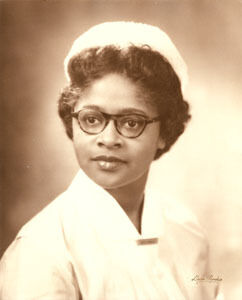
Esther McCready was a nurse and teacher who desegregated the University of Maryland School of Nursing in 1950. The case was filed in 1949 in Baltimore City Court by National Association for the Advancement of Colored People lawyers Charles Hamilton Houston and Donald Gaines Murray. After the court sided with the university, the case went to the Maryland Court of Appeals, where it was argued by Houston, Murray, and Thurgood Marshall. The lower court's ruling was overturned by the Maryland Court of Appeals, and McCready began classes on September 5, 1950. She is in the Maryland Women's Hall of Fame.
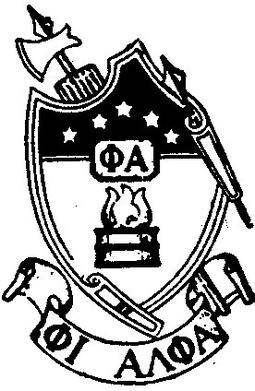
Phi Alpha (ΦΑ) was an American historically Jewish fraternity founded in 1914. It merged with Phi Sigma Delta in 1959. Ten years later, that fraternity merged with Zeta Beta Tau.

















